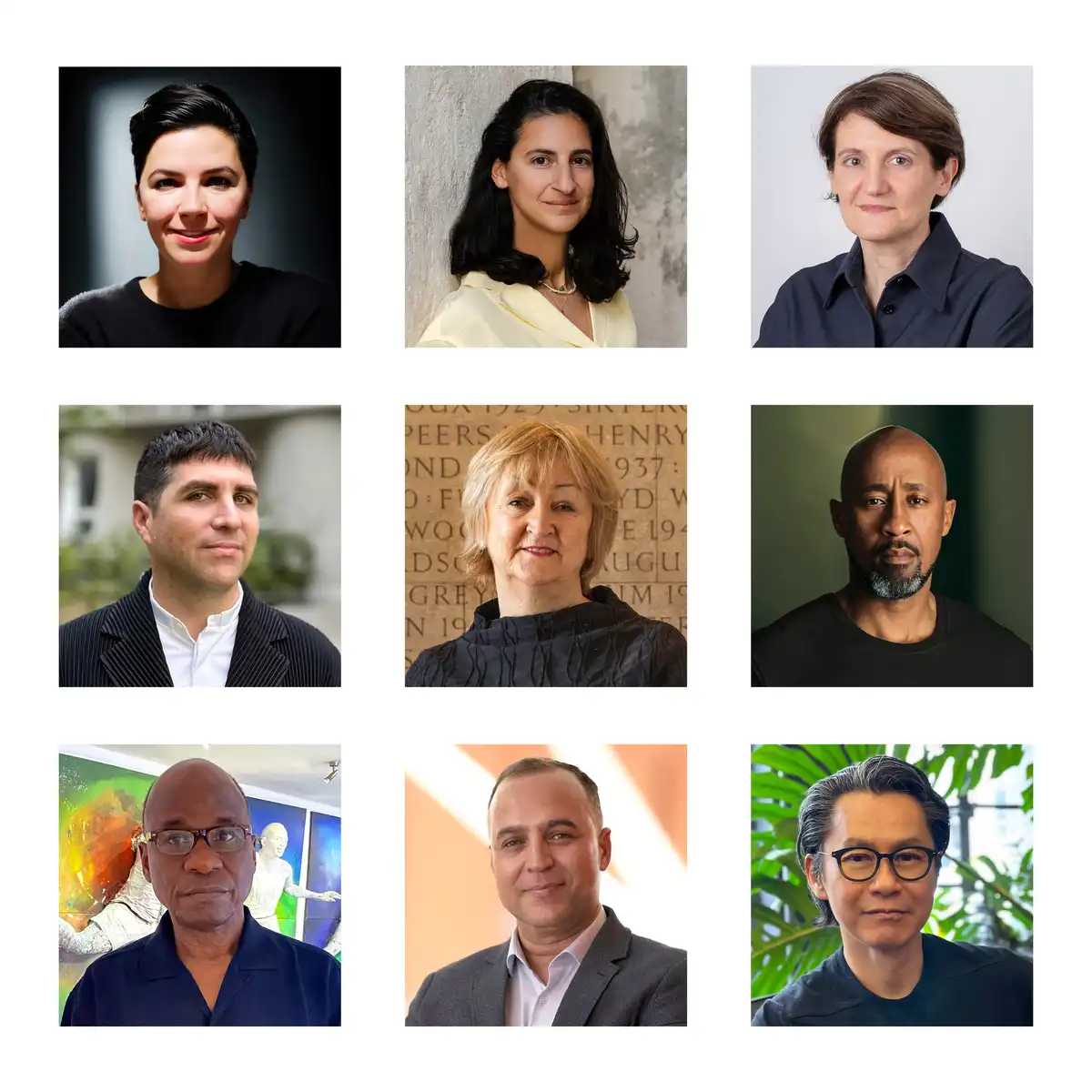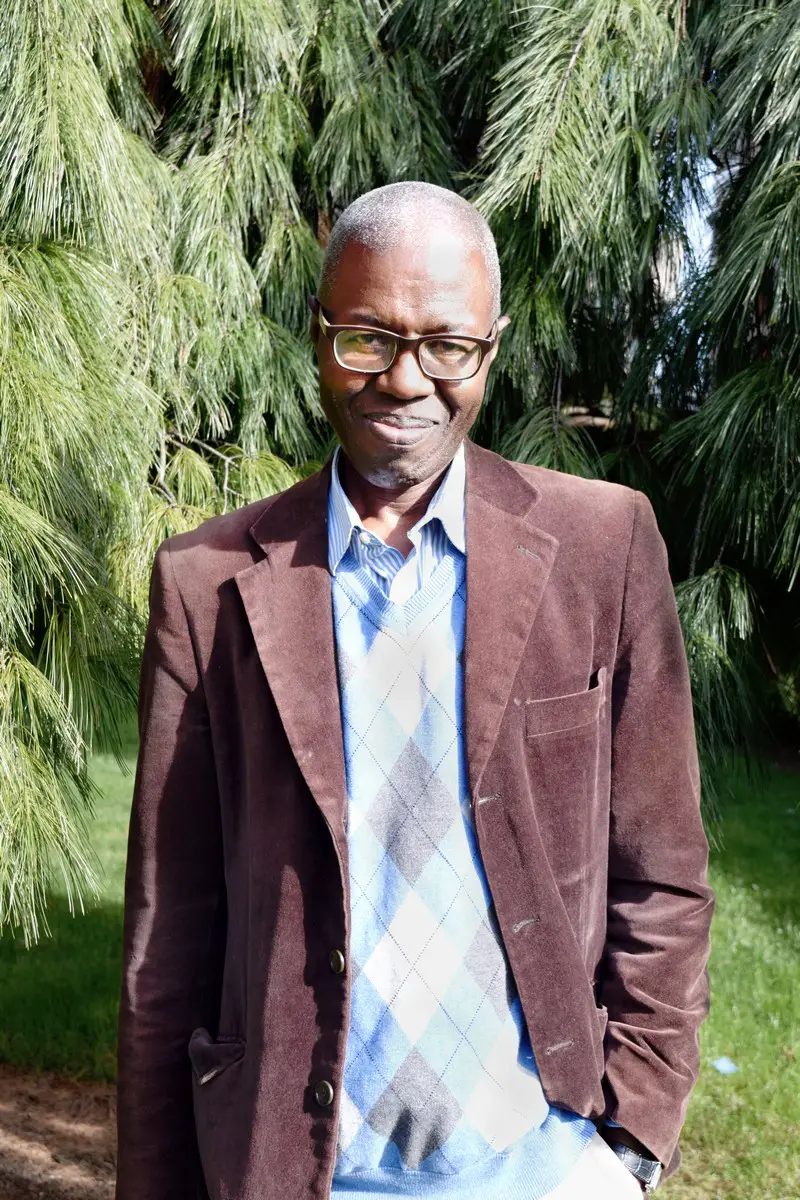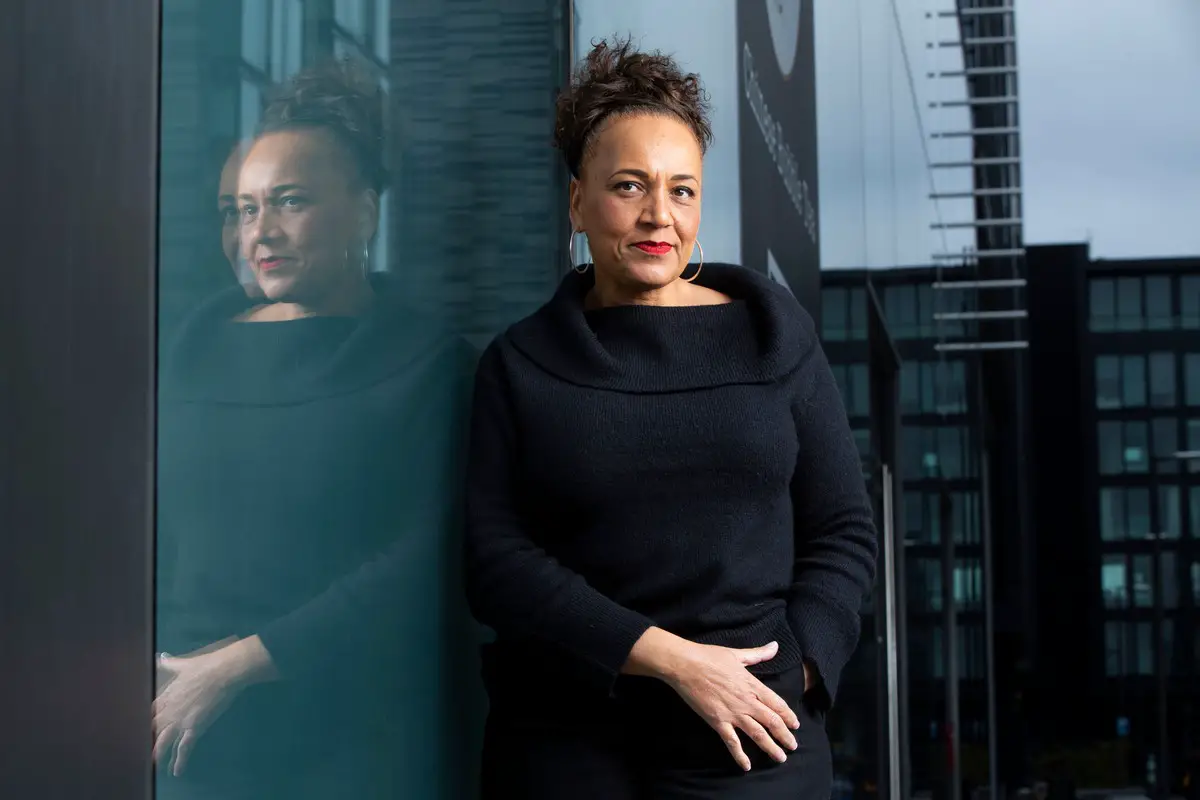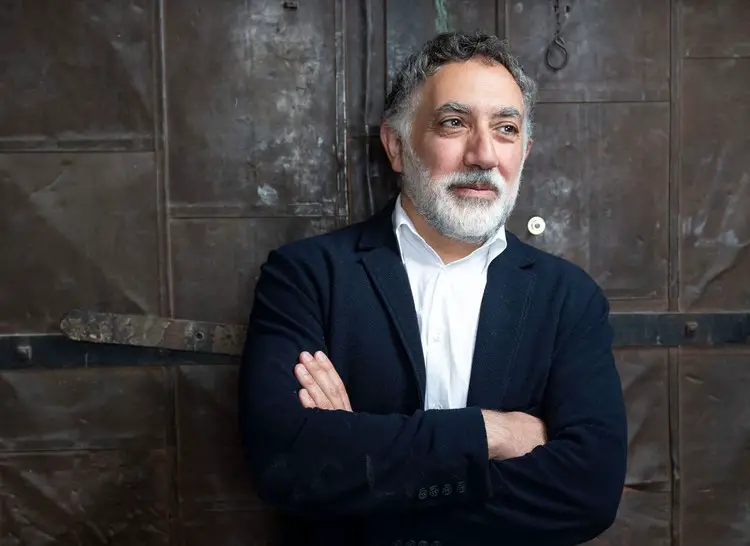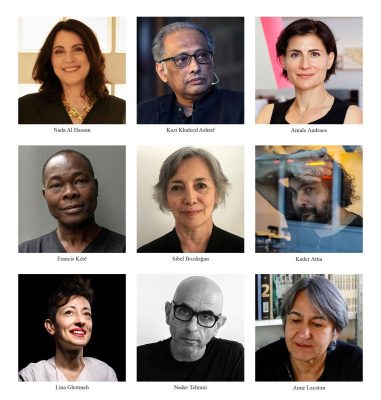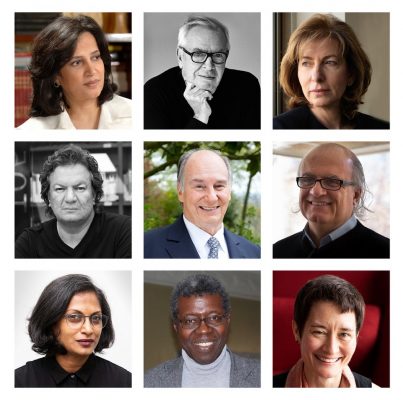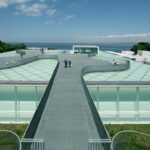2023-2025 Aga Khan Award for Architecture Jury, Steering Committee news, Architects, Architectural design, Buildings
2025 Aga Khan Award for Architecture
The Master Jury for the 2025 Aga Khan Award for Architecture is announced.
Geneva, Switzerland, 3rd of October 2024 – Aga Khan Award for Architecture announces 2025 Master Jury (the.akdn)
3 October 2024
2023-2025 Cycle Aga Khan Award for Architecture
2023-2025 Cycle Master Jury – AKDN (the.akdn)
The independent panel, responsible for selecting the winners of the prestigious US$ 1 million Award, will meet in January to evaluate and shortlist projects from hundreds of nominations worldwide.
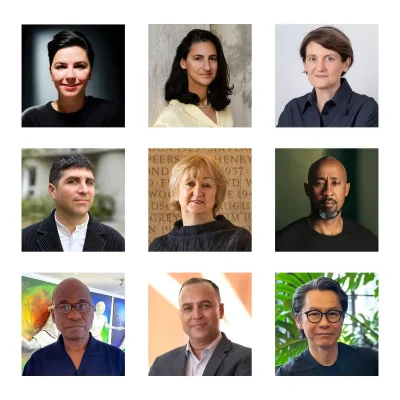
Photographers: AKSAMIJA Azra © Dietmar Offenhuber; AL SAYEH Noura © Ishaq Madan; ALLAIS Lucia © Brian Goldfarb; BASULTO David © Valeriia Karas; FARRELL Yvonne © Anna Mas; KONATE Yacouba © Rotonde des Arts; WONG Mun Summ © WOHA
The nine members of the Master Jury for the 16th Award cycle (2023-2025) are:
Azra Akšamija, Professor & Director, Art, Culture and Technology Program, Massachusetts Institute of Technology, Boston, USA
Noura Al-Sayeh Holtrop, Advisor for Heritage Projects, Bahrain Authority for Culture and Antiquities, Manama, Bahrain
Lucia Allais, Director, Buell Center, Columbia University Graduate School of Architecture, Planning and Preservation, New York, USA
David Basulto, Founder, ArchDaily, Santiago, Chile and Berlin, Germany
Yvonne Farrell, Academy of Architecture, Mendrisio, Switzerland; Founder and Partner, Grafton Architects, Dublin, Ireland
Kabage Karanja, Co-founder, Cave_bureau, Nairobi, Kenya; Assistant Professor of Architectural Design, Yale University, New Haven, USA
Yacouba Konaté, Professor of Philosophy, University Félix Houphouët Boigny of Abidjan-Cocody, Abidjan, Côte d’Ivoire
Hassan Radoine, Director General & Full Professor, Citinnov SA for Integrated Territorial Planning and Smart Cities, Mohammed VI Polytechnic University, Rabat, Morocco
Mun Summ Wong, Professor-in-Practice, Department of Architecture, College of Design and Engineering, National University of Singapore; Co-founding Director, WOHA, Singapore
2025 Master Jury Announcement
Following the selection of the shortlist, projects will undergo rigorous on-site reviews by independent experts, the majority of whom are architects, conservation specialists, planners or structural engineers. The Jury will meet for a second time in summer 2025 to examine the on-site reviews and select the final winners.
The selection process emphasises architecture that not only provides for people’s physical, social and economic needs, but also stimulates and responds to their cultural aspirations. Particular attention is given to building schemes that use local resources and appropriate technology in innovative ways and to projects likely to inspire similar efforts elsewhere.
The Aga Khan Award for Architecture is governed by a Steering Committee chaired by His Highness the Aga Khan.
The other members of the Steering Committee are:
Meisa Batayneh, Principal Architect, Founder, maisam architects and engineers, Amman, Jordan
Souleymane Bachir Diagne, Professor in the departments of French and Philosophy, Columbia University, New York, USA
Lesley Lokko, Founder & Director, African Futures Institute, Accra, Ghana
Gülru Necipoğlu, Director and Professor of the Aga Khan Program for Islamic Architecture, Harvard University, Cambridge, USA
Hashim Sarkis, Dean, School of Architecture and Planning, Massachusetts Institute of Technology, Cambridge, USA
Sarah M. Whiting, Dean, Graduate School of Design, Harvard University, Cambridge, USA
Farrokh Derakhshani is the Director of the Award.
Previously on e-architect:
20 + 18 October 2023
2023-2025 Aga Khan Award for Architecture Steering Committee
Aga Khan Award for Architecture announces its Steering Committee for 2025 Award
Project Submission for 16th Cycle Begins
Individual photos of the Jury now online.
Geneva, Switzerland, 18th of October 2023 – The Aga Khan Award for Architecture has announced the members of its Steering Committee for the 2023-2025 cycle.
The Steering Committee governs the Award and is chaired by His Highness the Aga Khan.
2023-2025 Aga Khan Award for Architecture Steering Committee:
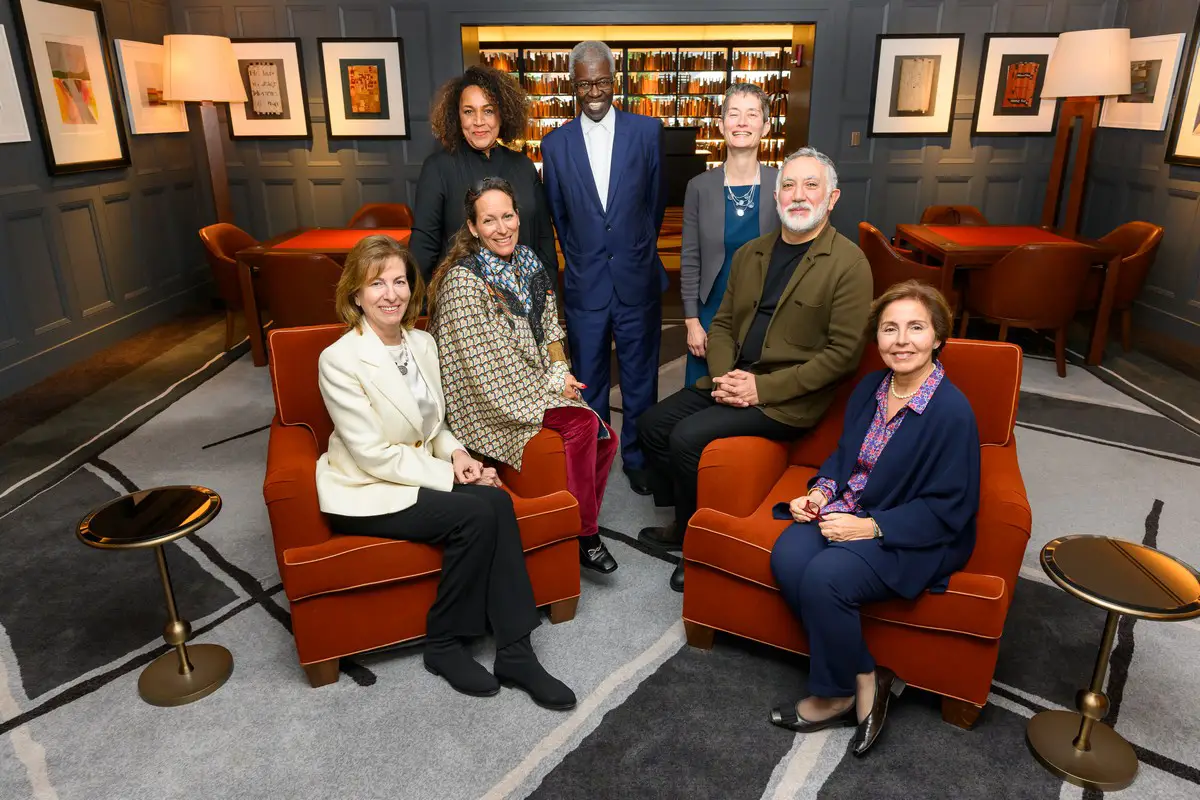
photo © Justin Knight, courtesy of the Aga Khan Award for Architecture
Newly appointed members of the Steering Committee are:
- Meisa Batayneh, maisam architects and engineers, Amman, Jordan
- Souleymane Bachir Diagne, Columbia University, New York City, NY, USA
- Lesley Lokko, African Futures Institute, Accra, Ghana
- Gülru Necipoğlu, Aga Khan Program for Islamic Architecture, Harvard University, Cambridge, MA, USA
- Hashim Sarkis, School of Architecture and Planning, Massachusetts Institute of Technology, Cambridge, MA, USA
- Sarah M. Whiting, Graduate School of Design, Harvard University, Cambridge, MA, USA
Farrokh Derakhshani is the Director of the Award. For more information about the Steering Committee, including biographies, please see the 2025 Steering Committee https://the.akdn/architecture
2023-2025 Aga Khan Award for Architecture News
A new committee is constituted each cycle to establish the eligibility criteria for project submissions, provide thematic direction in response to emerging priorities and issues, and to develop plans for the future of the Award. One of its most important tasks is to select an independent Master Jury which, in turn, selects award recipients from projects nominated.
“The Award has been most effective when at the forefront of identifying key issues facing the built environment and selecting relevant projects to address these concerns,” said Princess Zahra Aga Khan, at the Steering Committee’s inaugural meeting. “The challenges of climate change and environmental degradation are today intertwined with geo-political shifts, migration, natural disasters, and rapid urbanisation. I would therefore urge members of the Steering Committee to emphasise in this cycle, infrastructure, climate change as well as the important role of civil society actors in shaping how we live, work and play.”
Established in 1977, the Aga Khan Award for Architecture is given every three years to projects that set new standards of excellence in architecture, planning practices, historic preservation and landscape architecture. The Award seeks projects that represent the broadest possible range of architectural interventions, with attention given to building schemes that use local resources and appropriate technology in innovative ways, and those that are likely to inspire similar efforts elsewhere. Projects can be anywhere in the world but must successfully address the needs and aspirations of societies in which Muslims have a significant presence.
The Aga Khan Award for Architecture has completed 15 cycles of activity since 1977 and has documented over 9,000 building projects throughout the world. It has a prize fund of US$ 1,000,000. Winners who shared this prize during the last cycle in 2022, included: Urban River Spaces and Community Spaces in Rohingya Refugee Response (Bangladesh); Banyuwangi International Airport (Indonesia); Argo Contemporary Art Museum (Iran); the renovation of Niemeyer Guest house (Lebanon); and Kamanar Secondary School (Senegal).
The rigor of its nomination and selection process has made it, in the eyes of architects, experts and observers alike, one of the world’s most important architectural prizes.
The announcement of the Steering Committee coincides with that of the identification of projects for the 16th Award Cycle. Farrokh Derakhshani noted that, to be eligible for consideration in the 2025 Award cycle, projects must be completed between 1 January 2018 and 31 December 2023 and should have been in use for at least one full year.
Further details of the project submission process can be found here: Aga Khan Award for Architecture submission for 2025 Award.
All types of building projects that affect today’s environment may be submitted. These include architectural projects ranging from modest, small-scale buildings to sizable complexes, from single homes, bus stops and rural school buildings to skyscrapers, infrastructure and transportation undertakings, housing initiatives, educational and health campuses, new towns, urban conservation projects and the re-use of brown field sites. All forms of planning practice in urban as well as rural contexts are encouraged. Large projects and long-term initiatives that are not yet fully completed – such as master plans, area preservation projects, and community upgrading schemes, among others – are eligible so long as a tangible portion of the project has been completed in a manner that demonstrates its long-term potential success and viability.
For the sixteenth cycle (2023-2025), the Award particularly encourages the submission of projects that address climate change, intervene in rural landscapes, urban peripheries and those that deal with public space at all scales.
Architecture that reflects the pluralism that has characterised Muslim societies and communities around the world is encouraged. There are no fixed criteria for the type, nature, location, or cost of projects to be considered, although eligible projects must be designed for or used by Muslims, in part or in whole, wherever they are located.
To ensure the continuing impartiality of the Award procedures, projects affiliated with, or commissioned by His Highness the Aga Khan or the agencies of the Aga Khan Development Network cannot be considered, including those undertaken by current members of the Award Steering Committee and Master Jury, or by the Boards or staff of the Aga Khan Trust for Culture and Aga Khan Development Network.
Ceremonies to announce the winning projects and mark the close of each triennial cycle are always held in settings selected for their architectural and cultural importance to the Muslim world. Previous venues for Award ceremonies encompass many of the most illustrious architectural achievements, including Shalimar Gardens in Lahore (1980), Topkapi Palace in Istanbul (1983), the Alhambra in Granada (1998), Emperor Humayun’s Tomb in Delhi (2004), and most recently at the Kazan Kremlin in the Russian Federation (2019) and the Royal Opera House in Muscat (2022).
Address
Aga Khan Award for Architecture
PO Box 2049
1211 Geneva 2
Switzerland
The Aga Khan Award for Architecture (AKAA) is part of the Aga Khan Trust for Culture (AKTC), which has a wide range of activities aimed at the preservation and promotion of the material and spiritual heritage of Muslim societies. As the cultural agency of the Aga Khan Development Network (AKDN), the Trust leverages cultural heritage as a means of supporting and catalysing development.
Its programmes include the Aga Khan Historic Cities Programme, which works to revitalise historic cities in the Muslim world, both culturally and socioeconomically. Over the last decade, it has been engaged in the rehabilitation of historic areas in Cairo, Kabul, Herat, Aleppo, Delhi, Zanzibar, Mostar, northern Pakistan, Timbuktu and Mopti.
The Aga Khan Music Programme, which consolidates the activities of the Aga Khan Music Award and the Aga Khan Music Initiative, fosters the development of living musical heritage in societies across the world where Muslims have a significant presence, and disseminates this work internationally through collaborations with exceptionally creative musicians, artists, educators, and arts presenters. The Aga Khan Museum in Toronto, Canada offers visitors a window into the artistic, intellectual, and scientific heritage of Muslim civilizations and, through education, research, and collaboration, fosters a greater understanding and appreciation of those contributions.
The Trust also supports the Aga Khan Program for Islamic Architecture (AKPIA) at Harvard University and the Massachusetts Institute of Technology (MIT) as well as www.ArchNet.org, a major online resource on Islamic architecture. Its Education Programme aims to promote broader and deeper awareness among young people of the philosophy and values that underpin the efforts of the Trust. It has developed teaching materials and processes to enable the wealth of knowledge accumulated by two of the Trust’s key programmes – the Aga Khan Award for Architecture and the Aga Khan Historic Cities Programme – to be shared with university and high school students, as well as a broader interested public.
The Aga Khan Development Network – AKDN is a group of private, international, non-denominational agencies working to improve living conditions and opportunities for people in specific regions of the developing world. The Network’s organisations have individual mandates that range from the fields of health and education to architecture, rural development and the promotion of private-sector enterprise.
Together, AKDN works towards a common goal – to build institutions and programmes that can respond to the challenges of social, economic and cultural change on an on-going basis. It works in close partnership with public and private institutions, including amongst others, governments, international organisations, companies, foundations, and universities.
2023 – 2025 Aga Khan Award for Architecture images / information received 181023
The Steering Committee for the 2025 Aga Khan Award for Architecture
The Steering Committee for the 2025 Aga Khan Award for Architecture has been announced.
Members of the 2025 Aga Khan Award for Architecture Award Steering Committee:
His Highness the Aga Khan, Chairman
His Highness the Aga Khan, the founder and chairman of the Aga Khan Development Network (AKDN), is the 49th hereditary Imam (Spiritual Leader) of the Shia Ismaili Muslims. For His Highness the Aga Khan, one manifestation of his hereditary responsibilities has been a deep engagement with development for more than 60 years through the work of the AKDN.His Highness the Aga Khan established the Aga Khan Award for Architecture and became Chairman of its Steering Committee in 1977.
Subsequently, he founded the Aga Khan Program for Islamic Architecture at Harvard and MIT (1979) and the Aga Khan Trust for Culture (1988), which now includes the Aga Khan Historic Cities Programme, Aga Khan Music Programme, Aga Khan Museum and the Education Programme. Other AKDN agencies are also active in the field of the built and natural environment, such as the Aga Khan Agency for Habitat, which works to mitigate the threats posed by natural disasters and climate change.
The Aga Khan’s interest and patronage in architecture has been recognised by numerous professional institutions who have bestowed upon him their highest honours and medals, including the American Institute of Architects, USA (1984), the Royal Institute of British Architects (1991), International Union of Architects (2001), the Royal Architectural Institute of Canada (2013) and the Architectural League of New York (2017).
He has also been honoured for his work in preserving cultural heritage, including the Hadrian Award from the World Monuments Fund (1996), the Vincent Scully Prize from the National Building Museum (2005) and the Urban Land Institute’s J.C. Nichols Prize for Visionaries in Urban Development (2011). In addition, he has received honorary citizenships from cities as varied as Granada, Samarkand and Timbuktu, as well as many other awards, decorations and honorary degrees.
Meisa Batayneh
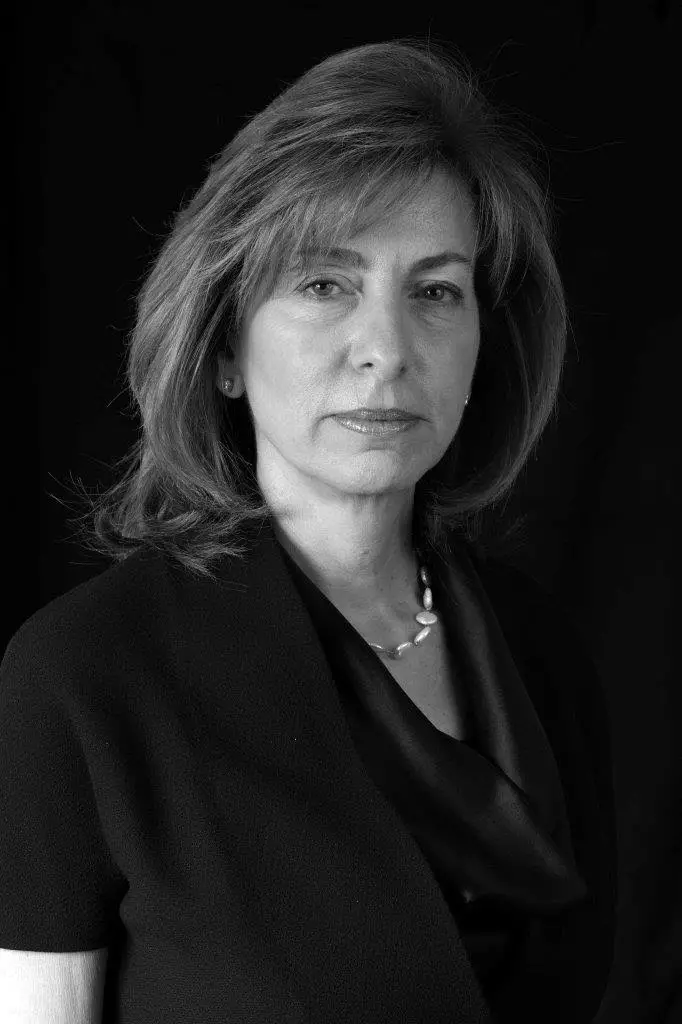
photograph courtesy of Aga Khan Award for Architecture
Meisa Batayneh is the founder and principal architect of maisam architects & engineers, which was established in 1986 with offices in Amman and Abu Dhabi. Ms Batayneh got her degree in architecture from the University of Texas at Arlington. Over her long and distinguished career, Ms Batayneh has led multidisciplinary teams on large-scale international and regional projects in the USA, Pakistan, Cyprus, Saudi Arabia, Egypt and the UAE. In addition to her passion for applying creativity, design and innovation to enhance the built environment, she is actively engaged in social initiatives through national and international commissions and boards.
Ms Batayneh was selected as a member of the Amman Commission, which was entrusted with developing the greater Amman Masterplan. She is a founding member of the Jordan Green Building Council and the Middle East Leadership Association. She is also a member of the Board of Trustees at the King Abdullah II Center for Excellence. She was the first president of Jordan’s Business and Professional Women’s Association and served as a jury member on the Women in Business Cartier Awards. She was recognised as the Leading Arab Woman Architect by the Federation of Arab Architects and Engineers.
maisam’s work has won numerous global awards, including the ArchitzerA+ Popular Choice Award in 2015, LEAF Award in 2014 (for “A Gateway to Petra”) and multiple Arabian Property Awards. maisam’s work was also shortlisted for the World Architectural Festival (WAF) for the “Aqaba Bus Terminal” in 2009, “A Gateway to Petra” in 2012 and the “Petra Museum” in 2015. maisam won the World Architecture Festival’s Future Projects for “School in a Park” in 2019.
Ms Batayneh joined the Board of the LafargeHolcim Foundation for Sustainable Construction in January 2020. She served as a member of the regional jury for Middle East Africa and is a Jury member of the Global LafargeHolcim Awards.
Ms Batayneh served on the Master Jury for the Aga Khan Award for Architecture in 2019 and was a member of the 2022 Award Steering Committee.
Souleymane Bachir Diagne
An alumnus of Ecole Normale Supérieure with an agrégation and a PhD in Philosophy from the Sorbonne, Souleymane Bachir Diagne is a professor of Philosophy and Francophone Studies at Columbia University and a Director of the Institute of African Studies until 2024. Prior to his appointment at Columbia, Professor Diagne taught philosophy at Cheikh Anta Diop University in Dakar, Senegal, for 20 years before joining Northwestern University in 2002 as a professor in the departments of Philosophy and Religion, with an affiliation to the Program of African Studies.
He is the author of numerous works in the fields of the history of algebraic logic, Islamic philosophy and philosophy in Africa. His research focuses on the history of philosophy and algebraic logic, the history of Islamic philosophy and African philosophy. At the heart of his philosophical work is a reflection on a universal of encounter, a universal from the plural of the world. His most recent publications in English are: The Ink of the Scholars. Reflections on Philosophy in Africa, Dakar, Codesria, 2016; Open to Reason: Muslim Philosophers in Conversation with the Western Tradition, New York, Columbia University Press, 2018; Postcolonial Bergson, New York, Fordham University Press, 2019; In Search of Africa(s). Universalism and Decolonial Thought (co-author: Jean-Loup Amselle), Cambridge, UK & Medford, MA, Polity Press, 2020; African Art as Philosophy: Senghor, Bergson and the Idea of Negritude, New York, The Other Press, 2023.
An Officer of the National Order of Arts and Letters from the French government, Professor Diagne is a member of the American Academy of Arts and Sciences and of the Senegalese Academy of Sciences and techniques. He is also an associate member of the Royal Academy of Belgium and of the Royal Academy of Morocco.
Professor Diagne served on the Steering Committee for the Aga Khan Award for Architecture in 2022 and was a member of the Award Master Jury in 2010.
Lesley Lokko
Professor Lesley Lokko OBE is the founder and director of the African Futures Institute (AFI) in Accra, Ghana. She holds a BSc(Arch), MArch and PhD in Architecture from the Bartlett School of Architecture, University College London. She was the founder and director of the Graduate School of Architecture, University of Johannesburg (2014-2019) and the Dean of Architecture at the Bernard & Anne Spitzer School of Architecture (2019-2020). She is the editor of White Papers, Black Marks: Race, Culture, Architecture (University of Minnesota Press, 2000) and the editor-in-chief of FOLIO: Journal of Contemporary African Architecture.
In 2004, she made the successful transition from academic to novelist with the publication of her first novel, Sundowners (Orion 2004) and has since followed with 12 further bestsellers, which have been translated into 15 languages. She is a founding member of the UN-Habitat Council on Urban Initiatives; was a member of the 17th International Jury of the Venice Architecture Biennale; is a trustee of the London-based Architecture Foundation, the Clean Air Fund and the London Centre for Humanities. She has lectured and published widely on the subject of “race” and its relationship to architecture, particularly architectural education.
In 2021, Professor Lokko was awarded the RIBA Annie Spink Award for Excellence in Education and in 2021, the Ada Louise Huxtable Prize for Contributions to Architecture. She is a guest editor of the UCL Design Research in Architecture publication series and an honorary fellow of the Royal Incorporation of Architects in Scotland. She was recently awarded France’s Grande Médaille de l’Académie d’Architecture.
She is currently a visiting professor at the Bartlett School of Architecture, University College Dublin and has held visiting professorships at the Cooper Union, NYC and University of Virginia. She was appointed Curator of the 18th International Architecture Biennale at La Biennale di Venezia, which opened on 20 May 2023. In January 2023, she was awarded an OBE “for services to architecture and education” in King Charles’ New Year’s Honours List.
Professor Lokko served on the Master Jury for the Aga Khan Award for Architecture in 2016.
Gülru Necipoğlu
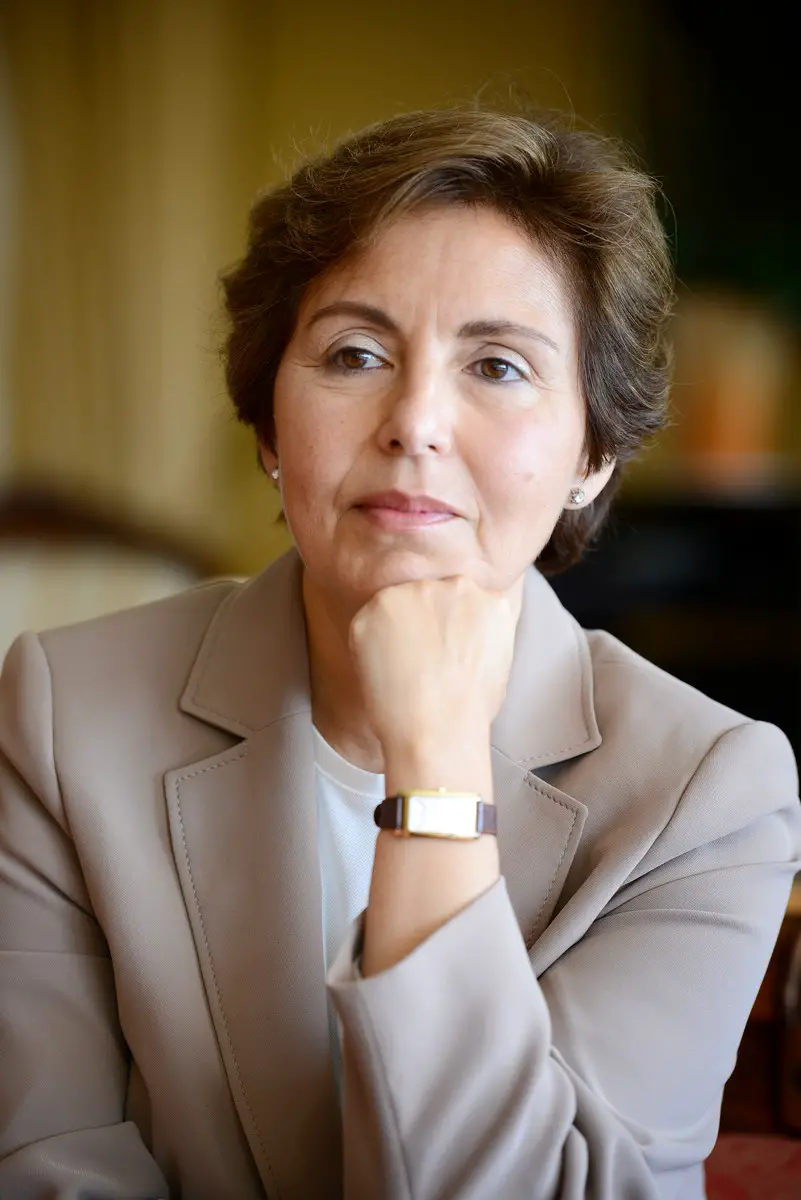
photo courtesy of Aga Khan Award for Architecture
Gülru Necipoğlu earned her doctorate from Harvard University in 1986, where she has served as the Aga Khan Professor and Director of the Aga Khan Program for Islamic Architecture since 1993. She specialises in the arts and architecture of the pre-modern Islamic lands, with a focus on the Mediterranean world and artistic exchanges between the Ottoman, Safavid and Mughal empires. Her studies have also addressed aesthetic interconnections with Byzantium and Renaissance Europe, pre-modern architectural practice and the role of ornament. She has mentored numerous students, who continue to transform the field.
Since 1993, Professor Necipoğlu has served as editor of Muqarnas: An Annual on the Visual Cultures of the Islamic World, the pre-eminent journal in the field, and its supplements. Her own publications include Architecture, Ceremonial and Power: The Topkapı Palace (1991), The Topkapı Scroll–Geometry and Ornament in Islamic Architecture (1995), The Age of Sinan: Architectural Culture in the Ottoman Empire (2005, 2011), Treasures of Knowledge: An Inventory of the Ottoman Palace Library (1502/3-1503/4) (2 vols, 2019, co-editors C. Kafadar, C.H. Fleischer), The Arts of Ornamental Geometry: A Persian Compendium on Similar and Complementary Interlocking Figures (2017), A Companion to Islamic Art and Architecture, in the Wiley-Blackwell Companions to Art History (co-editor F.B Flood, 2017) and Histories of Ornament: From Global to Local (co-editor A. Payne, 2016).
Professor Necipoğlu is an elected member of the British Academy, the American Philosophical Society, the American Academy of Arts and Sciences and Centro Internazionale di Studi di Architettura Andrea Palladio in Vicenza, Italy. She was appointed Slade Professor of Fine Art at the University of Cambridge in 2013 and Guest Faculty Scholar at the Kunsthistorisches Institut of Florence in 2014.
In 2023, the Smithsonian awarded her The Freer Medal National Museum of Asian Art, which honours those “who over the course of their career have contributed in a substantial way to the understanding of the arts of Asia”.
Professor Necipoğlu served on the Steering Committee for the Aga Khan Award for Architecture in 2016.
Hashim Sarkis
An architect, educator and scholar, Hashim Sarkis was appointed Dean of the MIT School of Architecture and Planning in 2014. He is the founding principal of Hashim Sarkis Studios (HSS), established in 1998 with offices in Boston and Beirut. He served as the curator of the 2021 Venice Architecture Biennale.
From 1995 to 2014, Dr Sarkis was on the faculty of the Harvard University Graduate School of Design (GSD), where he taught design studios and the history and theory of architecture. Between 2002 and 2014, he was the Aga Khan Professor of Landscape Architecture and Urbanism in Muslim Societies at the GSD, where he also directed the GSD’s Aga Khan Program.
The architectural and urban projects of HSS include affordable housing, houses, parks, institutional buildings, urban design and town planning. HSS has received several awards for its projects, including for the Housing of the Fishermen of Tyre, Byblos Town Hall and the Courtower Houses. The firm’s work has been exhibited around the world, for example, at the Museum of Modern Art in New York and at the biennales of Venice, Rotterdam, Shenzhen/Hong Kong and Valparaiso. The work has also been published extensively, including in a monograph by Ness.docs.
Dr Sarkis earned a Bachelor of Architecture and a Bachelor of Fine Arts from the Rhode Island School of Design, and a Master of Architecture and a PhD in Architecture from Harvard University. He is author, co-author and editor of several books and articles on modern architecture history and theory, including The World as an Architectural Project; Josep Lluís Sert: The Architect of Urban Design (co-edited with Eric Mumford); CASE: Le Corbusier’s Venice Hospital; Circa 1958, Lebanon in the Pictures and Plans of Constantinos Doxiadis; and Projecting Beirut (co-edited with Peter Rowe).
Dr Sarkis has served on international juries and has lectured extensively throughout the world.
Sarah M. Whiting
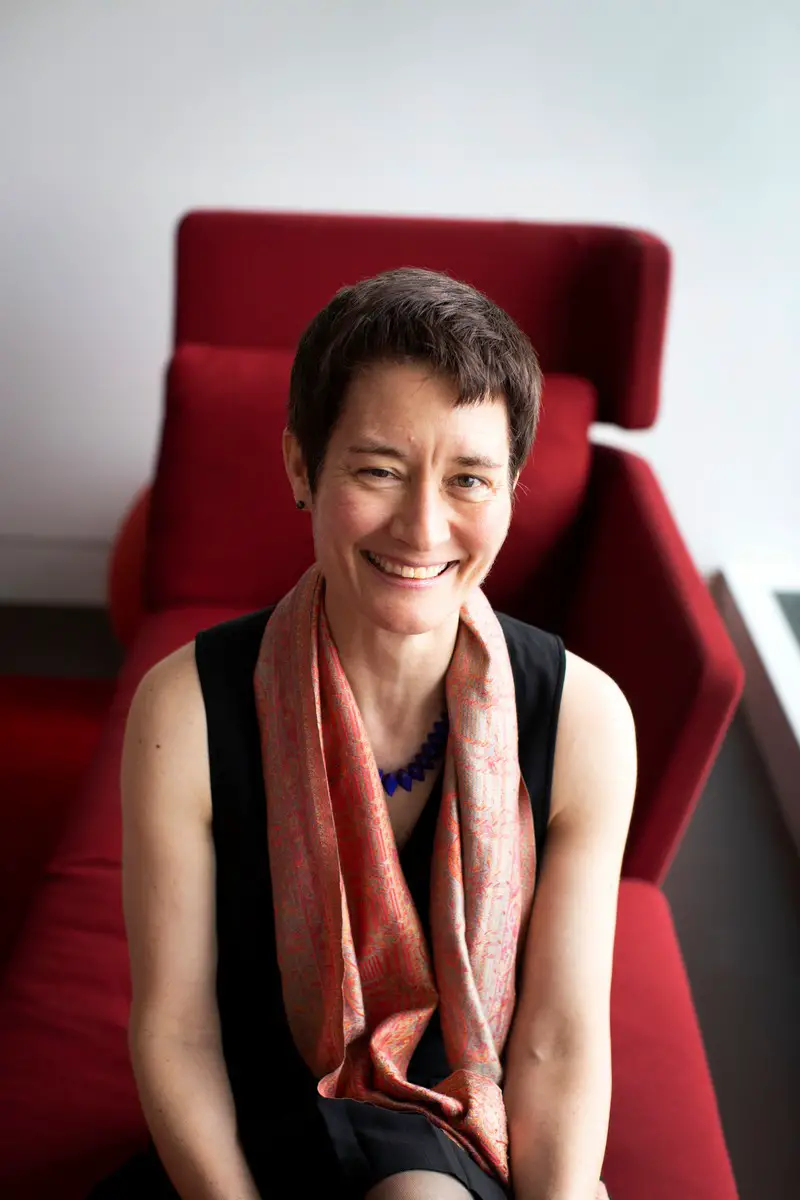
photo : Stephanie Mitchell ; Harvard Staff Photographer
Sarah M. Whiting has been the Dean and Josep Lluís Sert Professor of Architecture at the Harvard University Graduate School of Design since 2019. She served as the Dean of Rice University’s School of Architecture from 2010 to 2019. She is also a design principal and co-founder of WW Architecture.
Professor Whiting received a Bachelor of Arts degree in architecture, urban history and theory from Yale University, a Master of Architecture from Princeton University in 1990, and a Doctor of Philosophy in the History and Theory of Architecture from the Massachusetts Institute of Technology in 2001. Professor Whiting worked with the Office for Metropolitan Architecture in Rotterdam, The Netherlands, and with Peter Eisenman in New York. She has taught design, history, theory and criticism at additional institutions, including Princeton University, the Illinois Institute of Technology, the University of Kentucky and the University of Florida. She frequently lectures throughout the US and abroad, and regularly serves as a critic of architecture and urban design.
Professor Whiting’s research is broadly interdisciplinary, with the built environment at its core. An expert in architectural theory and urbanism, she has particular interests in modern and contemporary architecture’s relationship with politics, economics and society, and how the built environment shapes the nature of public life. Her work has been published in leading journals and collections. She is also the founding editor of Point, a book series aimed at shaping contemporary discussions in architecture and urbanism.
Professor Whiting’s writings have been published in journals ranging from ANY to Wired, as well as in collections including Shaping the City, Mies in America, Six Authors in Search of an Architect, and An Architecture for all Senses: The Work of Eileen Gray. She edited Differences, a collection of essays by Ignasi de Solà-Morales, and served as reviews editor for the journal Assemblage from 1996 to 2001. She currently serves on the editorial boards of the journals LOG, The Plan and Thresholds.
Professor Whiting served on the Steering Committee for the Aga Khan Award for Architecture in 2022.
+++
Farrokh Derakhshani
Farrokh Derakhshani has been the Director of the Aga Khan Award for Architecture since 2006. Trained as an architect and planner, he has been involved with the Award since 1982, specialising in the contemporary built environment of Muslim societies.
The Steering Committee for the 2025 Aga Khan Award for Architecture images / information received 201023
Previously on e-architect:
June 2022
Aga Khan Award for Architecture Announces 2022 Shortlist
20 projects in 16 countries, from Indonesia to Cape Verde
The Aga Khan Award for Architecture (AKAA) today announced 20 shortlisted projects for the 2022 Award cycle. The projects will compete for a share of the US$ 1 million prize, one of the largest in architecture.
2022 Aga Khan Award for Architecture Shortlist
Bahrain
Rehabilitation of the Manama Post Office
Design: Studio Anne Holtrop, Architects
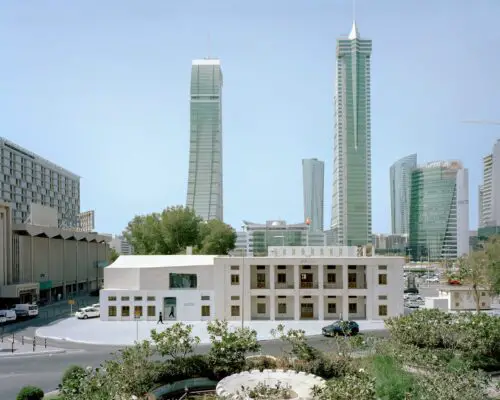
photo : Aga Khan Trust for Culture / Maxime Delvaux (photographer)
Manama Post Office Rehabilitation
Bangladesh
Community Spaces in Rohingya Refugee Response, Teknaf, Cox’s Bazar District, Division of Chittagong
Architects: Rizvi Hassan, Khwaja Fatma, Saad Ben Mostafa
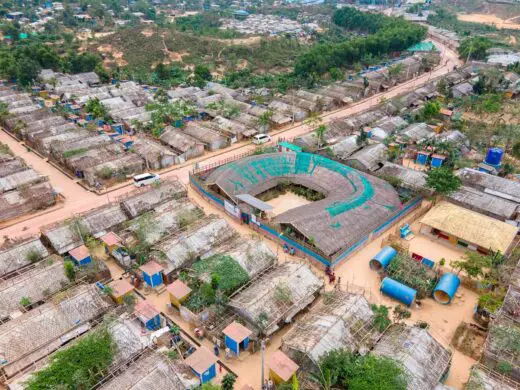
photograph © Aga Khan Trust for Culture / Asif Salman (photographer)
Community Spaces in Rohingya Refugee Response
Urban River Spaces in Jhenaidah
Architect: Co.Creation Architects / Khondaker Hasibul Kabir
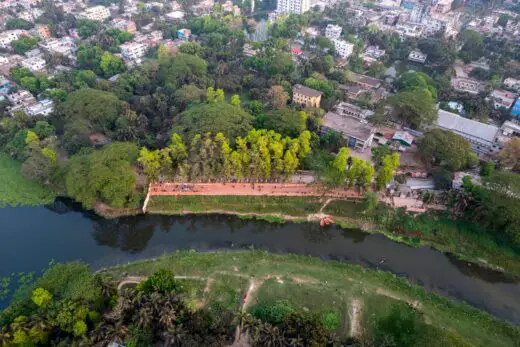
photograph © Aga Khan Trust for Culture / Asif Salman (photographer)
Urban River Spaces in Jhenaidah
Cape Verde
Outros Bairros Rehabilitation Programme, port of Mindelo, São Vicente, Cape Verde
Architect: OUTROS BAIRROS / Nuno Flores
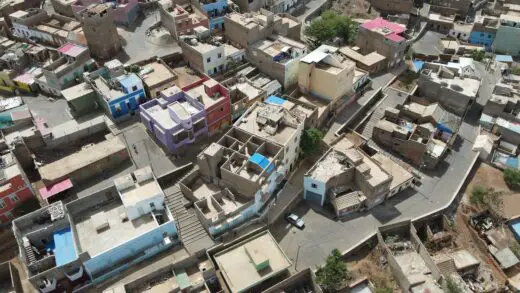
photo : Nuno Flores
Outros Bairros Rehabilitation Programme Mindelo
India
Lilavati Lalbhai Library, CEPT University, Ahmedabad, Gujarat, western India
Architect: RMA Architects / Rahul Mehrotra
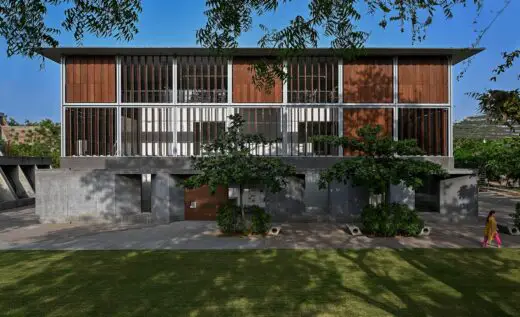
photo : Dinesh Mehta
Lilavati Lalbhai Library at CEPT University, Ahmedabad
Indonesia
Banyuwangi International Airport, East Java, Indonesia
Design: andramatin
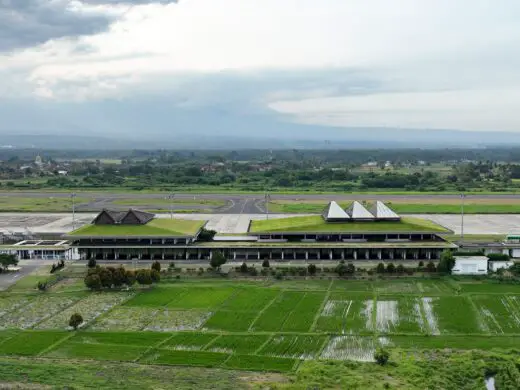
photo : Mario Wibowo
Banyuwangi International Airport
Expandable House, Batam, Riau Islands
Design: ETH Zurich / Stephen Cairns with Miya Irawati, Azwan Aziz, Dioguna Putra and Sumiadi Rahman
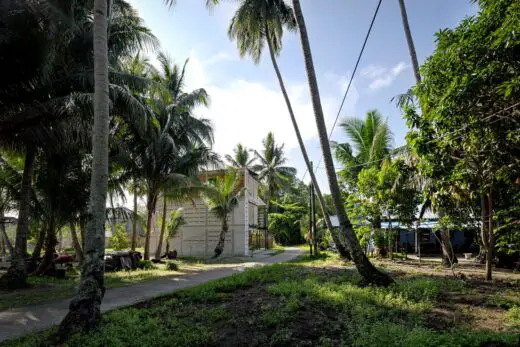
photo : Mario Wibowo
Expandable House Batam, Riau Islands
Iran
Aban House, Isfahan
Design: USE Studio / Mohammad Arab, Mina Moeineddini
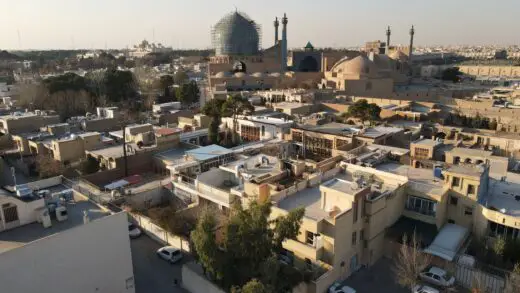
photo : Deed Studio
Aban House
Argo Contemporary Art Museum & Cultural Centre, Tehran
Design: ASA North / Ahmadreza Schricker
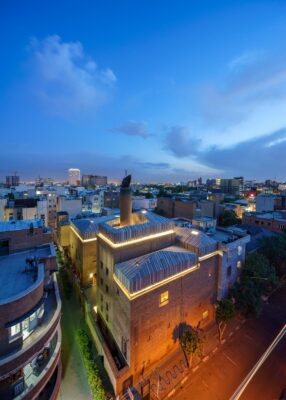
photo : Deed Studio
Argo Contemporary Art Museum & Cultural Centre
Jadgal Elementary School Building, Seyyed Bar, Polan District, Chabahar County, Sistan and Baluchestan Province
Design: Daaz Office
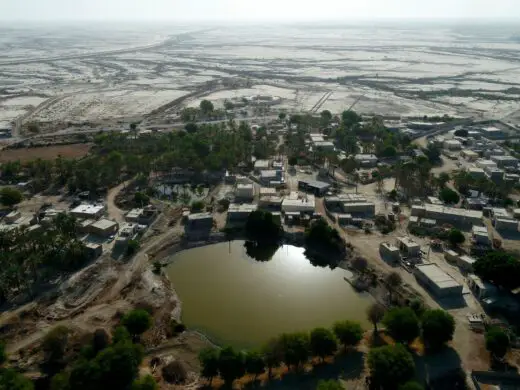
photo : Deed Studio
Jadgal Elementary School Building
Lebanon
Renovation of Niemeyer Guest House, Tripoli, Lebanon
Renewal Design: East Architecture Studio ; Design: Oscar Niemeyer
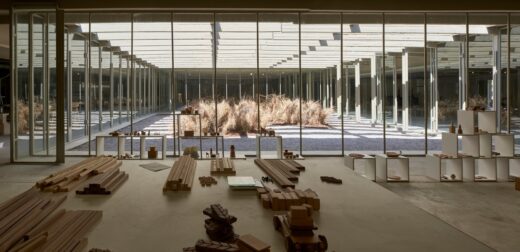
photo : Cemal Emden
Niemeyer Guest House Renovation Tripoli
Kuwait
Wafra Wind Tower
Wafra Wind Tower by AGi architects
Morocco
Issy Valley Improvement Landscape Design, Issy Valley, Aït Mansour, West Morocco
Design: Architect Salima Naji

photo : Amine Houari
Issy Valley Improvement, Aït Mansour
Niger
Design: united4design / Yasaman Esmaili, Elizabeth Golden, Mariam Kamara, Philip Straeter
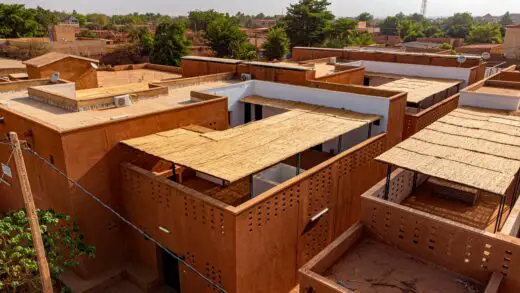
photo : Aboubacar Magagi
Niamey 2000
Palestine
Tulkarm Courthouse, Tulkarm, Palestine, by AAU Anastas
Senegal
Design: Dawoffice / David Garcia, Aina Tugores
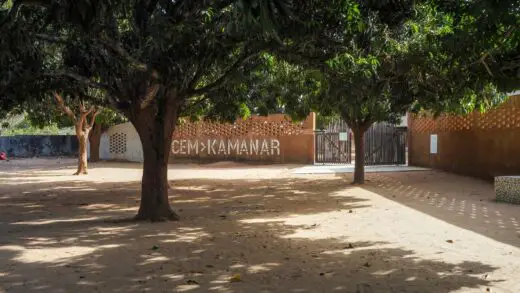
photo : Amir Anoushfar
CEM Kamanar Secondary School Senegal
Sri Lanka
Lanka Learning Centre
Design: feat.collective
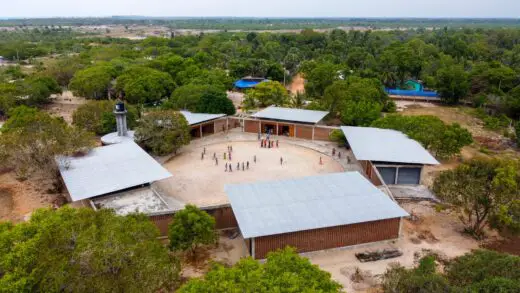
photo : Nipun Prabhakar
Lanka Learning Centre Sri Lanka
Tunisia
Le Jardin d’Afrique, Zarzis, Tunisia, by Rachid Koraïchi
Turkey
Tarsus Old Ginnery Rehabilitation, Mersin Province, south-central Turkey
Design: Sayka Construction Architecture Engineering Consultancy
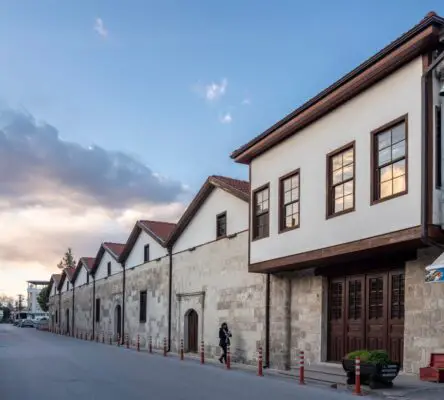
photo : Cemal Emden
Tarsus Old Ginnery Rehabilitation
United Arab Emirates
Sharjah Flying Saucer Building Rehabilitation
Design: SpaceContinuum Design Studio / Mona El Mousfy
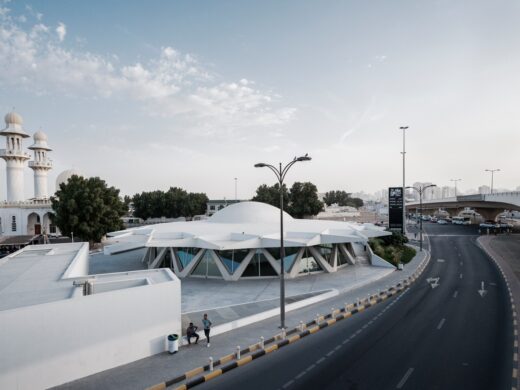
photo : Danko Stjepanovic
Sharjah Flying Saucer Building Rehabilitation
2020-2022 Aga Khan Award for Architecture Jury News
Independent Master Jury Will Select Recipients of US$ 1 Million Prize
2020-2022 Aga Khan Award for Architecture
2019 Aga Khan Award for Architecture Winner
X-Architects wins Aga Khan Award for Architecture 2019 with Wasit Wetland Centre Sharjah, United Arab Emirates
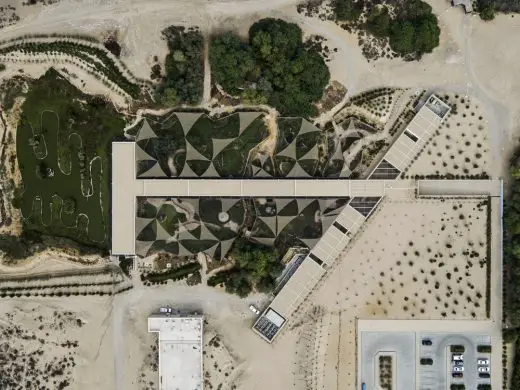
photograph © X-Architects Nelson Garrido
Architect: X-Architects, Dubai, United Arab Emirates
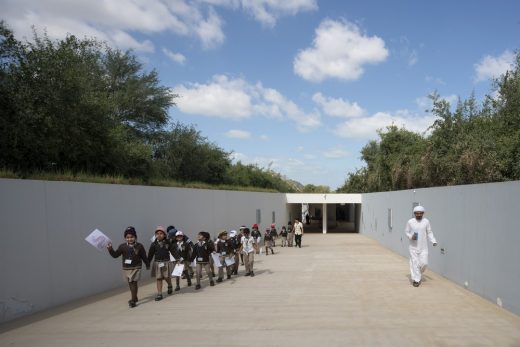
photograph © Aga Khan Trust for Culture / Cemal Emden (photographer)
Aga Khan Award for Architecture 2019 Shortlisted Projects
Aga Khan Award for Architecture 2019 Shortlist – selected projects:
Muttrah Fish Market Muscat, Oman
Architect: Snøhetta, Oslo, Norway
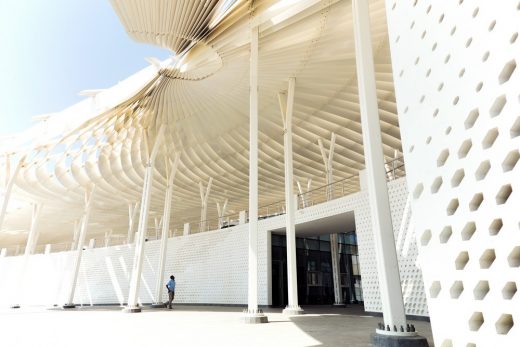
photography © Firas Al Raisi, Luminosity Productions
Mutrah Fishmarket Muscat Building by Snohetta
Concrete at Alserkal Avenue Dubai, United Arab Emirates
Architect: OMA: Office for Metropolitan Architecture, Rotterdam, Netherlands
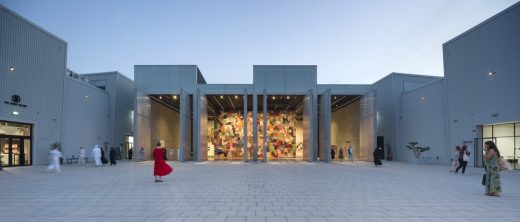
photograph © Aga Khan Trust for Culture Cemal Emden
Concrete Venue Dubai Alserkal Avenue by OMA
Palestinian Museum Birzeit, Palestine
Architect: Heneganh Peng Architects, Dublin, Ireland
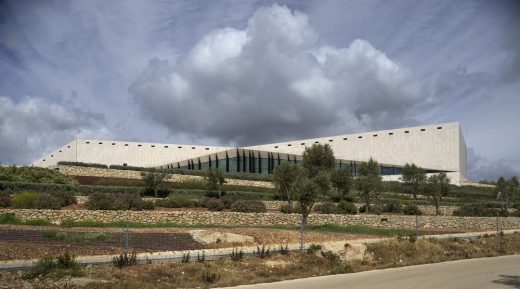
photograph © Aga Khan Trust for Culture Cemal Emden
Palestinian Museum Birzeit by Heneghan Peng Architects
Amber Denim Loom Shed Gazipur, Bangladesh
Architect: Archeground, Dhaka, Bangladesh
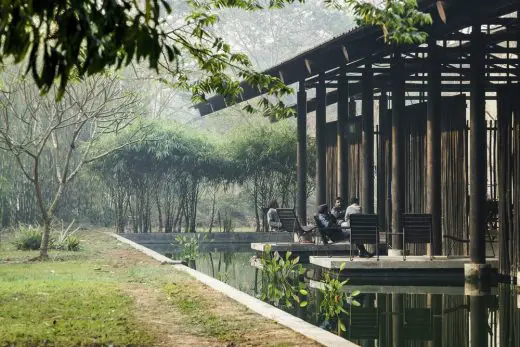
photograph © Aga Khan Trust for Culture Sandro di Carlo Darsa
Amber Denim Loom Shed by Archeground
Taman Bima Microlibrary, Bandung, Indonesia
Architect: SHAU Architects, Bandung, Indonesia
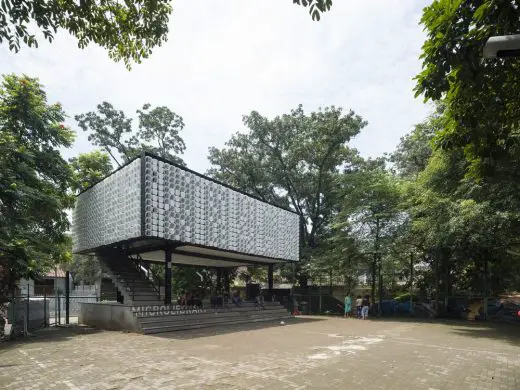
photograph © Aga Khan Trust for Culture Cemal Emden
Taman Bima Microlibrary by SHAU Architects
AM Residence Jakarta, Indonesia
Architect: Andramatin Architect, Jakarta, Indonesia
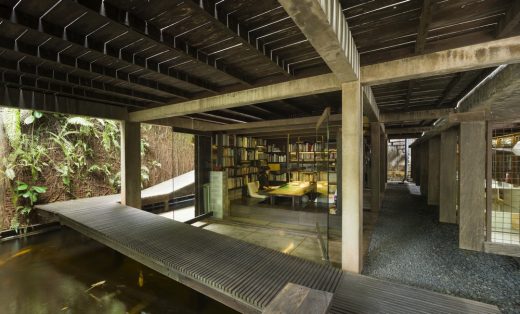
photograph © Aga Khan Trust for Culture Cemal Emden
AM Residence by Andramatin Architect
Courtyard House Plugin, Beijing, China
Architect: People’s Architecture Office, Beijing, China
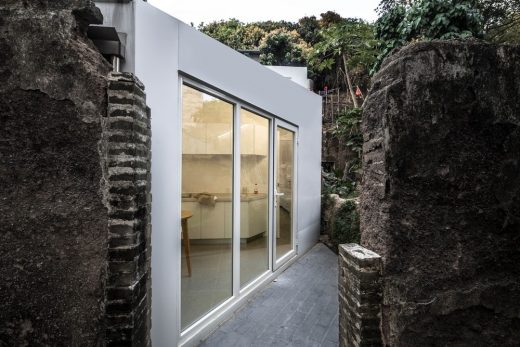
photograph © People’s Architecture Office
Courtyard House Plugin by People’s Architecture Office
Aga Khan Award for Architecture
Location: Doha, Quatar
Asian Architecture
Building Design Awards
Contemporary Building Awards – key architectural selection on e-architect below:
World Architecture Festival Awards
Comments / photos for the 2023-2025 Aga Khan Award for Architecture news page welcome

